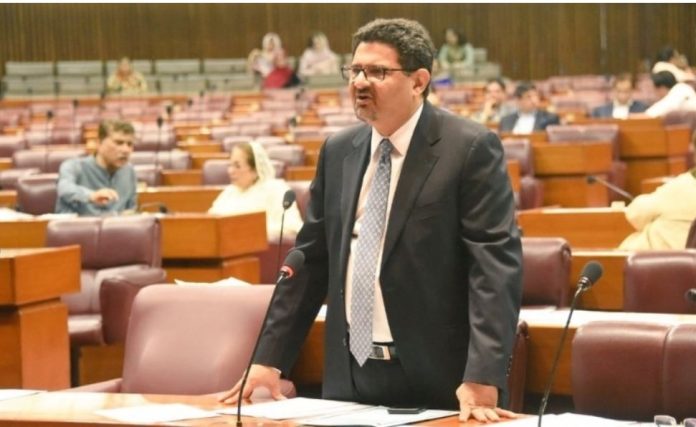ISLAMABAD, JUN 29: The National Assembly (NA) on Wednesday approved the passage of the Finance Bill, 2022, commonly known as the federal budget, with a majority vote after taking it up clause by clause.
There was virtually no opposition to the passage of the bill — similar to last year.
The passage of the budget for the fiscal year 2022-2023 brings the government one step closer to the revival of the stalled International Monetary Fund (IMF) programme.
On June 10, Finance Minister Miftah Ismail had presented the budget with an outlay of Rs9.5 trillion, the government had avoided taking unpopular tax measures for fear of political backlash. However, the government slowly had to roll back several relief measures after the IMF asked Islamabad to take practical measures to stabilise the economy.
Minister of State for Finance and Revenue Dr Aisha Ghous Pasha presented the Finance Bill, 2022 during today’s session which was chaired by NA Speaker Raja Pervez Ashraf.
The session, which commenced after more than a two-hour delay, began with Pasha asserting that the budget for the new fiscal year was not changed at the request of the International Monetary Fund (IMF).
She maintained that 80 per cent of the amendments were directly related to taxes. “Our aim is to tax the rich and to give relief to the poor,” she said.
She went on to say that the coalition government was implementing the agreements the former PTI government had inked with the Fund.
After the state minister’s remarks, the NA began the clause by clause approval of the finance bill.
During the process, the lower house of parliament approved the amendment to impose a Rs50 levy on petroleum products.
Commenting on this, Finance Minister Miftah Ismail said that currently no levy had been imposed on petroleum products.
“The government has received permission from the house to impose a petroleum levy of Rs50/litre on petroleum products. At the moment, there is no consideration and hope of immediately going up to this figure,” he said.
The NA also approved amendments for collecting sales tax from traders through electricity bills and imposing a 5pc tax on the services of IT and software consultants.
An amendment to take back the relief provided to the salaried class was also approved. Under the new rates, no tax will be imposed on those earning less than Rs0.6m per year. Meanwhile, those earning between Rs0.6m to Rs1.2m will have to pay a fixed tax of 2.5pc of the amount exceeding Rs0.6m.
Those earning Rs1.2m to Rs2.4m will have to pay a fixed tax of Rs15,000 plus 12.5pc of the amount exceeding Rs1.2m. Where taxable income exceeds Rs2.4m but does not exceed Rs3.6m the tax rate is Rs136,000 plus 20pc of the amount exceeding Rs2.4m.
Those earning between Rs3.6m to Rs6m will have to pay Rs405,000 plus 25pc of the amount exceeding Rs3.6m. For income between Rs6m to 12m, the tax will be Rs10m plus 32.5pc of the amount exceeding Rs6m. Where taxable income exceeds Rs12m, the tax is Rs2.9m plus 35pc of the amount exceeding Rs12m.
Further, the NA approved an amendment for imposing a super tax between 1-4pc on the income of those earning between Rs150m to Rs300m. It also approved imposing a 10pc “super tax” on large-scale industries.
Under the bill, a levy between Rs100-Rs16,000 was imposed on the import of mobile phones depending on its value. For mobile phones having a cost-and-freight (C&F) up to $30, it will be Rs100. For phones more than $30 and less than $100, it will be Rs200.
In the same way, for phones costing up to $200, it will be Rs600. For phones up to $350, it will be Rs1,800. For phones costing up to $500, the rate of levy will be Rs4,000. Meanwhile, for phones worth up to $700 it will be Rs8,000, while for phones more than $701 it will be Rs16,000.

















